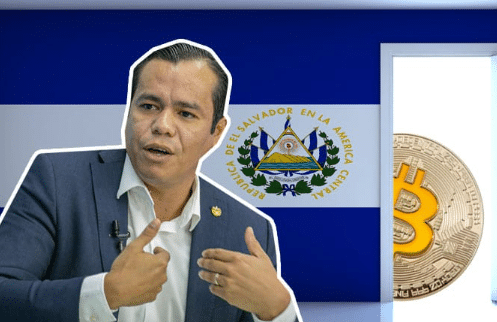The recent discussions surrounding the Bitcoin Policy El Salvador are not just a matter of national interest but also a reflection of the complexities involved in integrating cryptocurrency into mainstream economic structures. El Salvador, the first country in the world to adopt Bitcoin as legal tender, is now at a crossroads as it weighs potential adjustments to its groundbreaking policy. This comes in the context of negotiations with the International Monetary Fund (IMF), which has expressed concerns over the risks associated with the cryptocurrency.
As the nation navigates the financial landscape shaped by its Bitcoin Policy El Salvador, the implications of these negotiations extend beyond its own borders. The outcome may influence how other nations perceive the integration of cryptocurrency into their economies. Observers are keenly watching as El Salvador balances innovation with regulatory compliance, aiming to secure the needed funds while maintaining its unique position in the Bitcoin world.
This critical juncture signifies not only the potential transformation of the Salvadoran economy but also presents a larger narrative about the global acceptance of Bitcoin. With various stakeholders involved, the government must remain vigilant in addressing concerns while fostering an environment conducive to economic growth.
In essence, the decisions made during this period could serve as a precedent for future cryptocurrency adoption across the globe, illustrating the evolving relationship between national policy and digital currencies.
El Salvador’s Bitcoin Policy: A Bold Experiment
El Salvador has embarked on a groundbreaking journey by adopting a national Bitcoin Policy El Salvador that integrates one of the world’s most popular cryptocurrencies into its economy. This initiative, originally launched in September 2021, made headlines as the first country globally to recognize Bitcoin as legal tender, striving to promote financial inclusion and stimulate economic growth.
By encouraging citizens to use Bitcoin for daily transactions and enabling businesses to accept the cryptocurrency, El Salvador aims to harness the potential benefits of blockchain technology. The government has also established a Bitcoin Trust, backed by funds from the $1 billion bond sale, to manage the system and ensure that cryptocurrencies are used efficiently in society.
However, this bold experiment has not been without challenges. The volatility of Bitcoin prices, regulatory scrutiny from international financial institutions, and concerns about its impact on the national economy have raised questions about the sustainability of this Bitcoin Policy El Salvador.
As the country navigates these waters, it remains a focal point for discussions about the future of digital currencies and their role in governance. The outcomes of El Salvador’s experiment could have lasting implications for how other nations view and implement cryptocurrency regulations.
The IMF Loan Negotiations
The negotiations between El Salvador and the International Monetary Fund (IMF) have reached a critical juncture as the Central American nation seeks to secure financial assistance. The ongoing discussions around the loan revolve significantly around the country’s Bitcoin policy El Salvador, which has drawn both interest and skepticism from global financial institutions.
El Salvador’s decision to adopt Bitcoin as legal tender was groundbreaking and positioned the nation as a pioneer in cryptocurrency adoption. However, this move has raised concerns regarding economic stability and regulatory frameworks, particularly in the eyes of the IMF. The Fund seeks assurances that such policies do not jeopardize fiscal discipline or expose financial systems to excessive risk.
As negotiations progress, the IMF has been pressing for more clarity and possible revisions to the Bitcoin policy El Salvador. They are looking to ensure that the government’s approach to cryptocurrency aligns with sound economic practices and safeguards the interests of its citizens. This has prompted Salvadoran authorities to consider adjustments that could ease international concerns while still embracing the digital currency revolution.
The outcome of these discussions could have profound implications, not just for El Salvador’s economic future, but also for the broader acceptance and credibility of Bitcoin on the world stage. As the country navigates this complex landscape, the resolution of its negotiations with the IMF will undoubtedly impact its approach to cryptocurrency in the coming years.
Potential Adjustments to Bitcoin Policy
In light of ongoing negotiations with the International Monetary Fund (IMF), El Salvador may consider several adjustments to its current Bitcoin Policy El Salvador. These potential changes could aim to enhance fiscal stability and increase investor confidence.
One of the critical areas for adjustment might involve regulatory frameworks surrounding the use of Bitcoin in daily transactions and its adoption as legal tender. By implementing stricter regulations, the government could mitigate risks associated with volatility and promote safer usage among citizens and businesses.
Additionally, revisions could focus on enhancing transparency in how Bitcoin-related revenues are reported and managed. Improved transparency could not only satisfy IMF requirements but also reassure both local and international stakeholders about the country’s commitment to sustainable economic practices.
Furthermore, the government might explore the possibility of establishing a reserve fund to manage Bitcoin volatility. This fund could act as a buffer during price fluctuations, ensuring that the country’s economy remains stable despite the inherent risks tied to cryptocurrency.
Lastly, stakeholder engagement is crucial. By involving local communities, financial experts, and international advisors in the discussion, El Salvador can develop a more robust Bitcoin Policy El Salvador that supports both innovation and economic stability.
As these discussions unfold, the world will be watching closely to see how El Salvador navigates its journey toward integrating Bitcoin into its economy while securing essential financial support from international entities.
What This Means for Bitcoin’s Global Standing
The potential adjustments to El Salvador’s Bitcoin Policy could have far-reaching implications for Bitcoin’s global acceptance and reputation. As one of the first countries in the world to adopt Bitcoin Policy El Salvador officially, any changes made in response to the IMF negotiations will be closely monitored by other nations considering similar paths.
If El Salvador manages to establish a more stable relationship with international financial institutions while maintaining its commitment to cryptocurrency, it may pave the way for other countries to follow suit. This could enhance Bitcoin’s credibility as a legitimate currency, particularly in developing nations that struggle with traditional banking systems.
Conversely, if adjustments undermine the initial vision of Bitcoin integration, it may cause skepticism within the cryptocurrency community and prompt other nations to hesitate in adopting similar policies. The reaction of global investors and crypto advocates will also play a critical role in shaping Bitcoin’s market stability and value.
The outcome of El Salvador’s negotiations and any subsequent changes to its Bitcoin Policy El Salvador could either strengthen or weaken Bitcoin’s global standing, influencing how other countries approach cryptocurrency regulation and adoption.
Disclaimer
The information provided in this article is for informational purposes only and should not be construed as financial advice. While the ongoing discussions around Bitcoin Policy El Salvador are significant, they are subject to change based on the dynamic nature of economic conditions and regulatory frameworks.
Investors and individuals interested in the implications of the Bitcoin Policy El Salvador should conduct their own research and consult with financial advisors before making any investment decisions. The landscape of cryptocurrency is volatile and can be influenced by numerous factors, including government policies and international relations.
Furthermore, this article does not guarantee any outcomes regarding the potential adjustments to the Bitcoin Policy El Salvador or the impact of these changes on the country’s economy or the cryptocurrency market at large.
Always stay informed about the latest developments in the cryptocurrency space, as the regulatory environment continues to evolve rapidly.
The potential adjustments to the Bitcoin policy El Salvador is a critical turning point for the nation. As it seeks to align its policies more closely with the requirements of the International Monetary Fund, the implications of these changes extend far beyond its borders.
The decisions made by El Salvador in the near future will serve as a precedent, potentially influencing how other nations view cryptocurrency integration into their financial systems. By balancing innovation with regulatory compliance, El Salvador can reinforce its position on the global stage.
While the outcome of the negotiations remains uncertain, the focus on Bitcoin policy El Salvador highlights the intricate relationship between cryptocurrency adoption and global financial stability. Stakeholders will be keenly watching how these developments unfold.
The repercussions of El Salvador’s decisions could shape the future landscape of cryptocurrency policies worldwide, reflecting a delicate interplay between economic necessity and the evolving nature of digital currencies.
Frequently Asked Questions
Why is El Salvador considering adjusting its Bitcoin policy?
El Salvador is considering adjusting its Bitcoin policy to secure a loan agreement with the International Monetary Fund (IMF), which has raised concerns about the financial risks associated with the country’s adoption of Bitcoin as legal tender.
What are the potential changes to El Salvador’s Bitcoin policy?
Potential changes to El Salvador’s Bitcoin policy may include implementing stricter regulations on cryptocurrency transactions, enhancing consumer protections, or scaling back the use of Bitcoin in everyday transactions to address the IMF’s concerns.
How has the adoption of Bitcoin affected El Salvador’s economy?
The adoption of Bitcoin has resulted in mixed outcomes for El Salvador’s economy, with proponents arguing it has increased financial inclusion, while critics point to volatility and limited usage among citizens.
What is the role of the IMF in El Salvador’s financial decisions?
The IMF plays a significant role in El Salvador’s financial decisions by providing loans and financial assistance, but it requires that the country addresses certain macroeconomic policies and risks, particularly concerning financial stability.
What are the risks associated with using Bitcoin as legal tender?
The risks associated with using Bitcoin as legal tender include price volatility, potential for loss of value, regulatory challenges, and a lack of widespread public acceptance or understanding of cryptocurrency.
What impact might adjusting the Bitcoin policy have on El Salvador’s future?
Adjusting the Bitcoin policy could stabilize El Salvador’s economy by aligning it more closely with IMF expectations, potentially securing financial support while also addressing public skepticism about cryptocurrency.
How have citizens in El Salvador responded to the Bitcoin initiative?
Citizens in El Salvador have had diverse responses to the Bitcoin initiative, with some embracing it for financial opportunities, while others remain skeptical and resistant due to concerns about volatility and economic implications.



